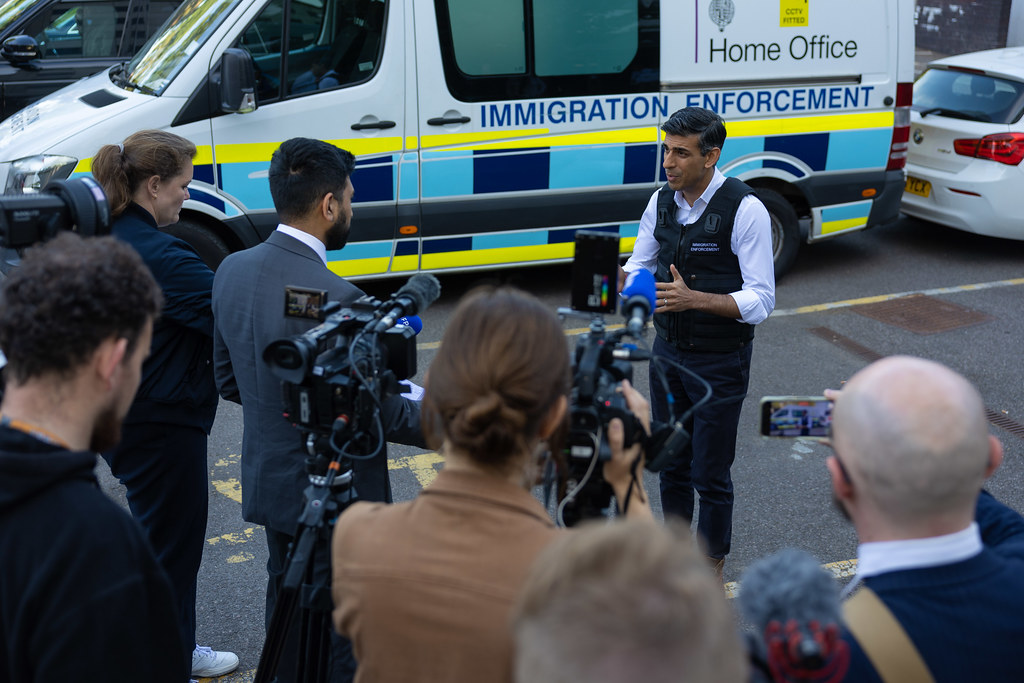Attitudes towards immigration in Europe are changing. Growing public concern over migrant numbers (both in terms of economic migrants and asylum seekers) has shifted many governments across the continent to the right, with some even bolstering once-fringe political parties. The European Union itself recently backed ‘The Migration Pact’ which provides for broadly harsher treatment of those arriving in the EU, including detaining migrants in detention centres for up to six months. Perhaps this is a sign of the rightward shift expected in upcoming EU elections this June.
The trend has been repeated nationally, but to very different degrees. Both the United Kingdom and France have seen shifts in government policy, while Denmark has pursued a ‘zero-refugee’ policy. Italy and the Netherlands, on the other hand, have seen shock election victories by ostensibly far-right parties.
The Prime Minister of the Netherlands Mark Rutte, nicknamed ‘Teflon Mark’ for his ability to wade through political scandal, resigned last year over disagreements on migration policy within his coalition government. Rutte, in response to a countrywide shift against immigration, had promised a crackdown and even suggested he would work with Dutch firebrand Geert Wilders. This move collapsed his government, giving way to Wilder’s surprise political upset in the November 2023 election (winning 23% of the vote). Wilders, a veteran Dutch politician, has led the right-wing populist ‘Party for Freedom’ since 2006, known for its strong anti-immigration policies. Wilder’s form of populism opposes migration not only for economic reasons but from a desire to ‘put the Dutch first’. Wilders has made much of his anti-Islam views, with his election manifesto containing proposals to ban mosques and the Quran (although now withdrawn).
France’s Parliament put together legislation in December tough enough for Marine Le Pen to describe it as an ‘ideological victory’ for her ‘National Rally’ party, variously described as populist-right to far-right. Le Pen was defeated by incumbent president Macron in the 2022 Presidential election, although the rematch was closer-run than in 2018. In December, Macron caved to pressure and made concessions within his immigration reform package to garner the support of the right-wing opposition. These moves were so hardline, it seems, that the Constitutional Council (the highest authority on constitutional matters in France) rejected large swathes of the reforms on the grounds that they went too far as amendments in comparison to the Government’s initial proposals.
Denmark has consistently pursued a ‘zero-refugee’ policy for the past years, although notably Prime Minister Mette Frederiksen is of the anti-migration left; right-wing thinking on the issue seems to have shifted many leftist parties across the bloc. Immigration was 19% lower in 2023, with Ukrainian being the most represented nationality.
The social-democratic Nordic/Scandinavian countries, once hailed as examples of how immigrants can be successfully integrated, have taken a tougher attitude toward immigration. An agreement was signed in 2023 between Finland, Denmark, Norway, Iceland and Sweden to cooperate on deporting illegal immigrants. Even such evidently progressive countries have red lines on immigration. These moves should however be distinguished from ideological opposition to immigration, such as the case in the Netherlands, as these moves are tempered by the tight labour markets in the EU with high demand for workers – shifts in immigration policy in these countries are likely to be more selective, rather than wholly oppositional.
This all seems shocking now. But thinking back to 2016 (if you can muster the courage), Brexit should have been a sign of the times – 26% of leave voters cited control over immigration as the most important factor in deciding how to vote. The UK might have been an early adopter of the anti-immigration attitudes now growing in popularity across the EU.
The effect on domestic politics is plain to see. Sunak’s priority number five is to ‘stop the boats’, and the Labour Party is seemingly incapable of discussing numbers or even specific policies – likely in fear of losing crucial seats in the upcoming election. The Rwanda policy saga, which faced both fierce support and criticism from the factions of the right and left respectively, signals a clear shift in views on immigration. Such a policy would have seemed absurd under a Cameron or May-led government, but rising support for the reduction of migrant numbers has given way to the populist rhetoric of those such as ex-Home Secretary Suella Braverman. Notions of ‘performative cruelty’ – making a show to the public of being harsh on immigrants – have played an important role in Government policy including the use of barges as a rhetorical tool; such policies are usually unwieldy, expensive, and, well – cruel.
Immigration has pushed Europe to the right. The shift is reflected, although not precisely, in the United States, Australia, and New Zealand which face their own unique issues. Ongoing refugee crises in the Middle East and beyond might make the moves seem overtly cruel. But to some, this is part of the point. Western countries must, at frequent intervals, grapple with and reassess the issue of migration, as both economic migrants and refugees will favour richer, developed countries to move to. Where the solution lies, or how far the shift will go, is yet to be seen – but the rightward shift itself is undeniable.
Write for us!
Interested in writing for the OX1 column, looking for somewhere to turn your article idea into a reality? Then look no further. Both the Global Affairs and Environment Section are looking for new writers and contributors. If you’re interested in student journalism and want to get involved make sure to join the Oxford Blue writers group on Facebook.
Oxford Blue Writers Group:
https://www.facebook.com/groups/2462003647260904/?mibextid=oMANbw
Global Affairs Writers Group:
https://www.facebook.com/groups/441255647575456/?mibextid=oMANbw

